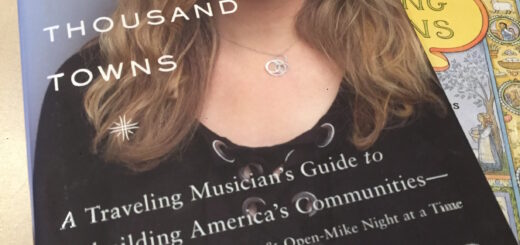Schreck’s play shows us where we fall short on equity
Playwright and actress Heidi Schreck’s riveting performance in “What the Constitution Means to Me” gives audience members plenty of reasons for soul searching and reflection on the state of our democracy and the search for equality in our society.
I had the honor of seeing Schreck perform last Saturday to a sold-out crowd at the Helen Hayes Theater in New York City. It was an emotional and intellectual tour-de-force as she combined a re-enactment of her American Legion contest performance from high school with personal reflections from her family’s history. It was part memoir and part social commentary and the effect was riveting, funny and, at times, disturbing and distressing.
“What the Constitution Means to Me” invites audience members to encounter the experience of the women in Heidi Schreck’s family and the ways in which the Constitution has fallen short.
Days after the performance, I found myself still processing the experience and wishing I could see it again to more fully absorb aspects of life that have been outside of my experience as an older white male from a very privileged background.
During the play, Schreck relates the shocking percentage of women in this country who are sexually assaulted during their lives and the number who are assaulted and killed each year at the hands of husbands or boyfriends.
She used her own family’s experience, telling the audience about the abuse her step-grandfather inflicted on the women in the family, including her mother Sherry Schreck. The beatings stopped only after Sherry and her sister called police. The man was prosecuted and imprisoned for his crimes.
Heidi described how proud she is that her mother broke the multi-generational cycle of family violence by meeting and marrying Larry Schreck. Sherry and Larry Schreck have made immeasurable contributions to the young people in the Wenatchee Valley through teaching, coaching baseball and directing plays. For many abuse victims, the cycle goes on unbroken for generations.
But the standing of women in this country, while vastly better than when this country was founded, is far from one of equality. That is the point of “What the Constitution Means to Me.”
In the play, Heidi Schreck dissected Supreme Court cases in recent years that rolled back the gains of women. She cited the 2005 Supreme Court case (Town of Castle Rock (Co) vs. Gonzalez) that the police could not be held liable for failing to enforce a protective order.
Jessica Gonzalez’s husband violated a restraining order and took their three daughters, police declined to respond, and he murdered his daughters.
The Supreme Court ruled that the police department had no obligation to enforce the protective order, Schreck told the audience. The culture of violence goes on.
While women’s rights have improved since our Constitution was adopted, the ascendance of originalist thinking on the Supreme Court in recent years suggests the course is reversing when it comes to laws governing a woman’s right to an abortion as well as civil rights, and protections for gays, lesbians, transgender and queer individuals. For the time being, older white men will continue making those decisions for our country.
At the end of the show, Schreck held an on-stage debate with a 14-year-old student over the question of whether our country should keep or rewrite the Constitution. At the conclusion of the performance, Schreck earned a standing ovation.
I cannot imagine how Schreck is able to perform this intensely personal story and the emotions that emerge for week after week.
Regardless of how one stands on the issues of abortion, civil and voting rights, what Schreck invites us to think about is the rights that we enjoy and whether those are available to everyone. That is something we all ought to wrestle with.



